
Alfred Hitchcock’s 1938 thriller The Lady Vanishes remains one of the hallmarks of the genre, and the Classic Thriller Theatre Company (presented by Bill Kenwright) has brought the story to vivid life on its excellent UK tour. Despite its distinctly Agatha Christie-esque trappings, the original film, scripted by Sidney Gilliat and Frank Launder, was actually based on the novel ‘The Wheel Spins’ by Ethel Lina White, although the mystery is a top-quality Christie-style affair.
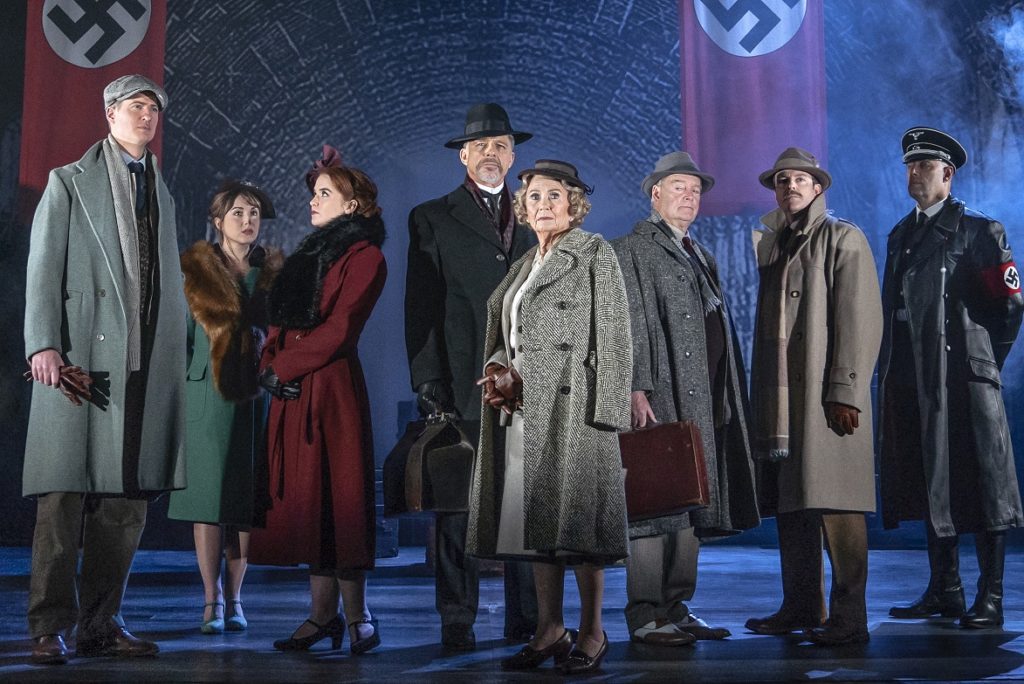
The story: on brink of World War II, pampered socialite Iris (Lorna Fitzgerald) is anxious to reunite with her Lordly fiancée on her way back to England. On the train ride home she strikes up a friendship with Miss Froy (Juliet Mills), a former governess who takes care of Iris after a bump on the head, and whose subsequent disappearance Iris is determined to solve – despite the other passengers denying they ever saw Miss Froy at all.
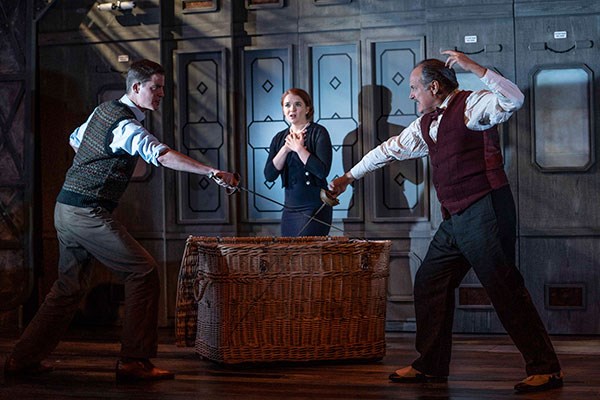
Although I was vaguely familiar with the synopsis (and wrongly convinced that it was an Agatha Christie joint), the rest of the story was new to me, and kept me guessing as to the compelling mystery at the heart of it. Is the conspiracy over Miss Froy’s disappearance (indeed, Miss Froy’s very existence) just a product of the injury to Iris’ head? Or is she being gaslit by unknown assailants for some nefarious purpose? The exact nature of events isn’t revealed until the end, but the setting and time period might provide some clues along the way.

The striking first image sets the scene in malevolently epic fashion: the curtain rises on a train station swathed in swastikas, in which Nazi officers mingle with ordinary citizens in a shockingly routine manner. It is an especially haunting visual because of how accustomed the characters are to this occurrence, and how this chillingly reflects the way in which Fascism is becoming insidiously normalised in the current political climate. It renders the story – over eighty years old at this point – powerfully relevant in our day and age.
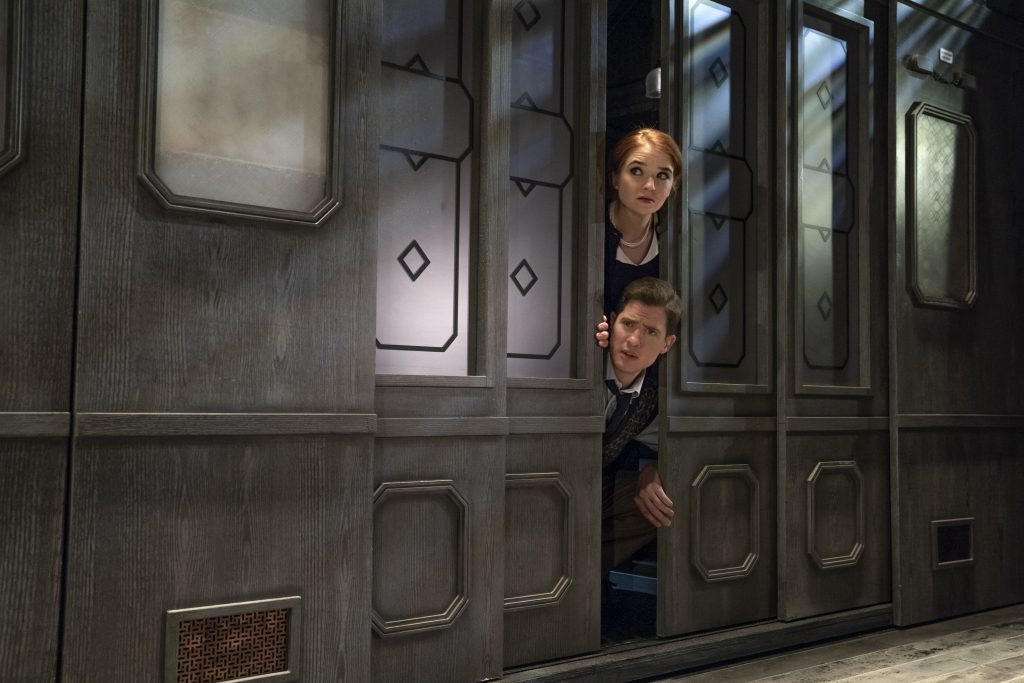
Roy Marsden’s marvellous direction and Antony Lampard’s agile script have produced a tight, nimble thriller in which the puzzle pieces are a joy to assemble and the story whips along at the same breakneck pace with which the train dashes through the Austrian Alps. As Iris, Fitzgerald wonderfully grounds the piece, crafting an affecting transformation from superficial to superstitious, and remaining endlessly sympathetic throughout. Her chemistry with Matt Barber’s elegantly affable Max is sublime; Barber brings a terrific Benedict Cumberbatch-esque flair to proceedings, and his good-natured bemusement provides an effective counterpoint to Fiztgerald’s harried resolve. The way in which the mutually antagonistic relationship between these unwitting detectives mutates into one of trust and esteem is one of the play’s loveliest lynchpins.
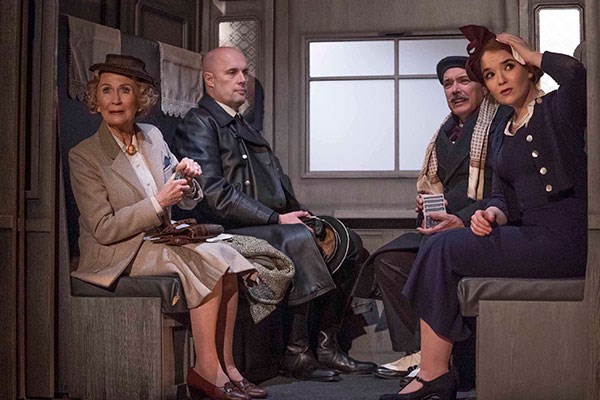
The play is helmed by acting icons Juliet Mills (as the vanished lady herself) and Maxwell Caulfield (as the genially dubious neurologist Dr Hartz). Although they aren’t in as much of the play as I presumed, they both make a tremendous impression with their superb performances that are a credit to the calibre of their acting credentials. The production excels in both in its mystery and (delightfully) in its comedy, with the latter largely owing to the often-oblivious antics of country-hopping cricket fanatics Charters and Caldicott (Robert Duncan and Ben Nealon), but the play deftly weaves comedy into the mystery and is thoroughly entertaining throughout.
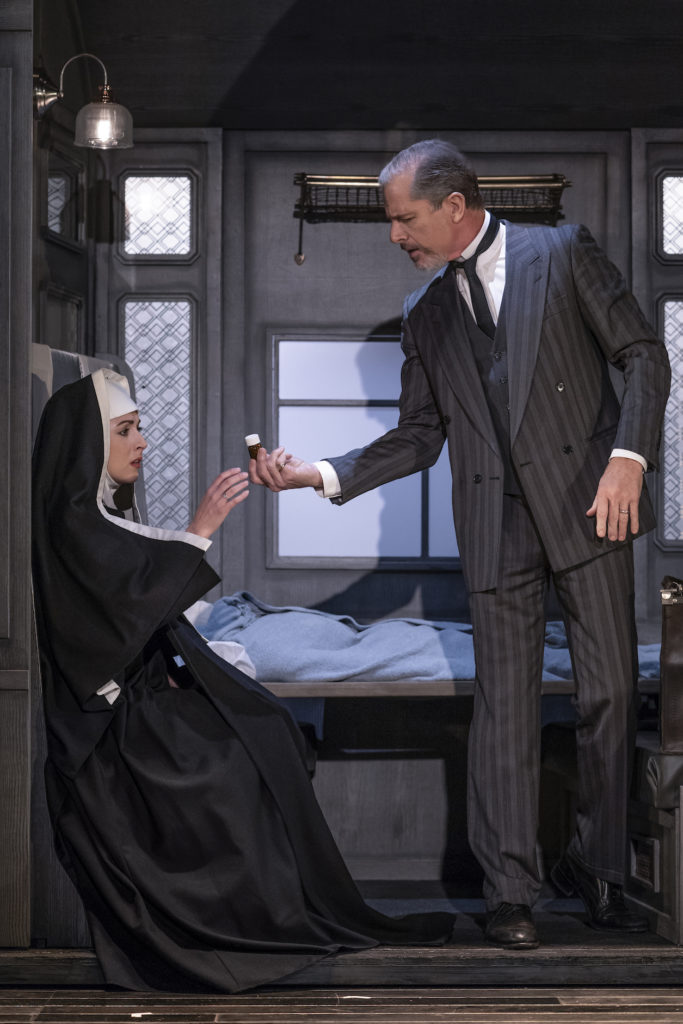
Designed by Morgan Large, the set is both gorgeously authentic and splendidly theatrical, an artistic marvel that is worth seeing the play for alone. Sumptuously realised and innovatively adaptable, the train in which most of the action takes place is animated by Charlie Morgan Jones’ inventive lighting, the collaboration of which crafts a magical visual experience that gives the sensation that you – the audience – are on the train with the characters.
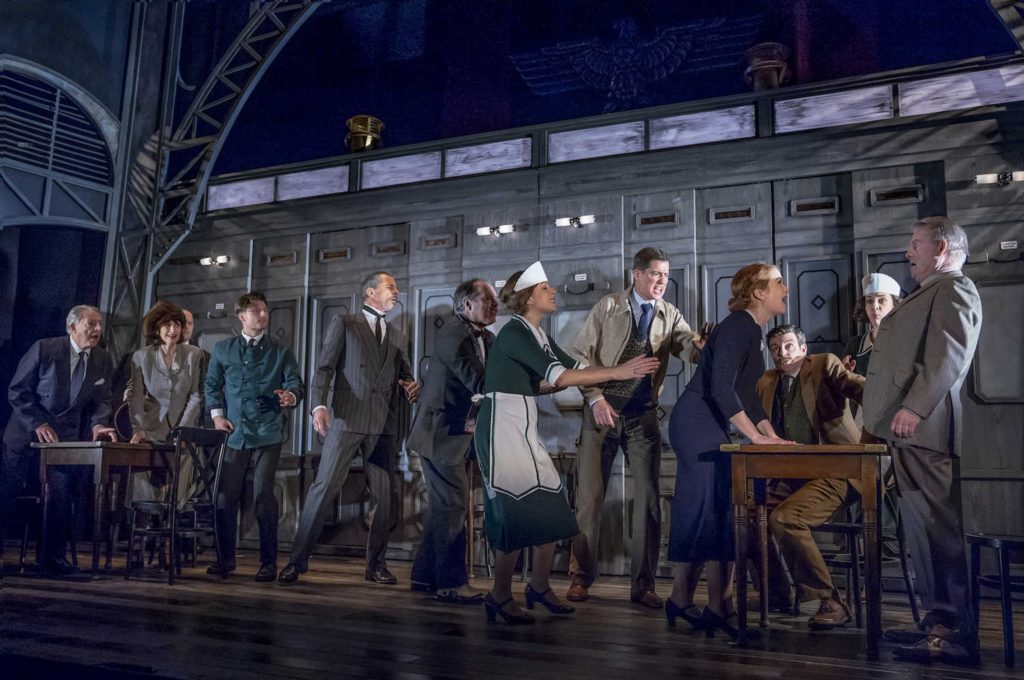
Star-studded, sumptuously crafted and swiftly paced, this UK tour of The Lady Vanishes is a wonderful theatrical mystery that you owe yourself the joy of unravelling. (I would also direct you to Donna Poynton’s excellent review of the show, especially as Donna is more familiar with Classic Thriller Theatre Company’s repertoire ). It will be playing at the New Theatre through Saturday 20th July, after which it will conclude its tour in Leeds until 27th July.
